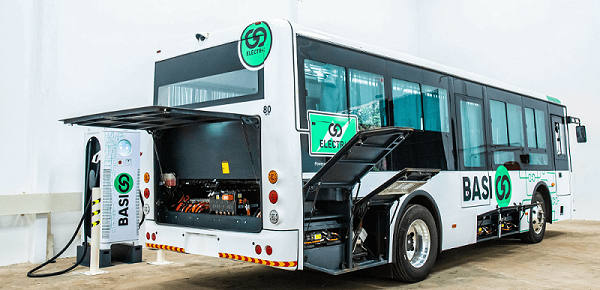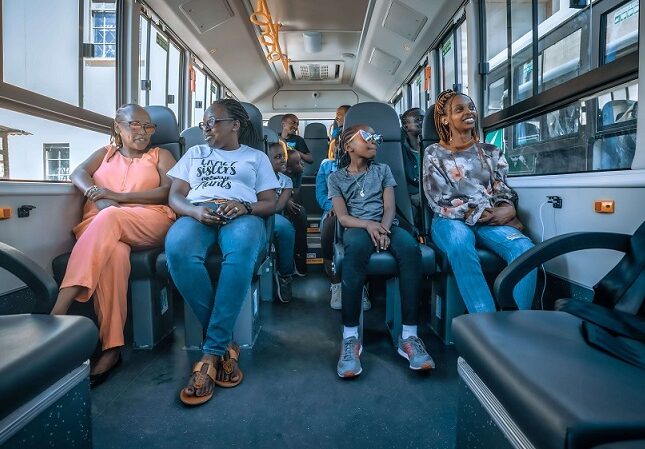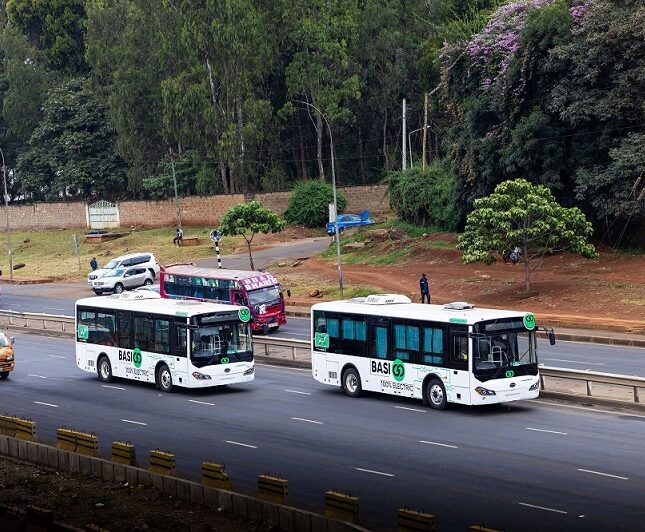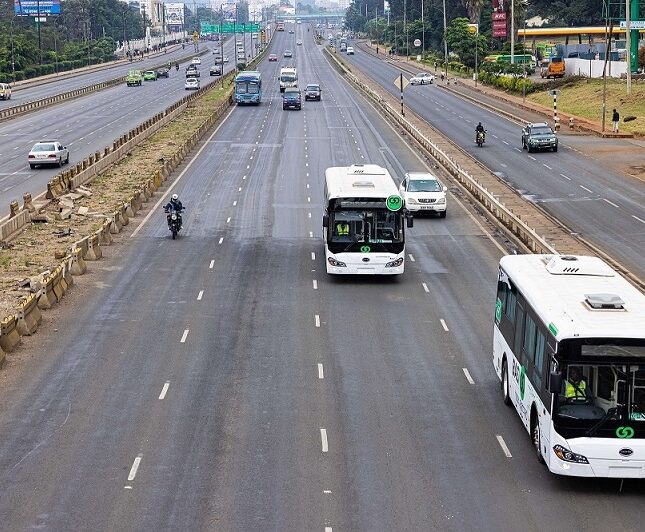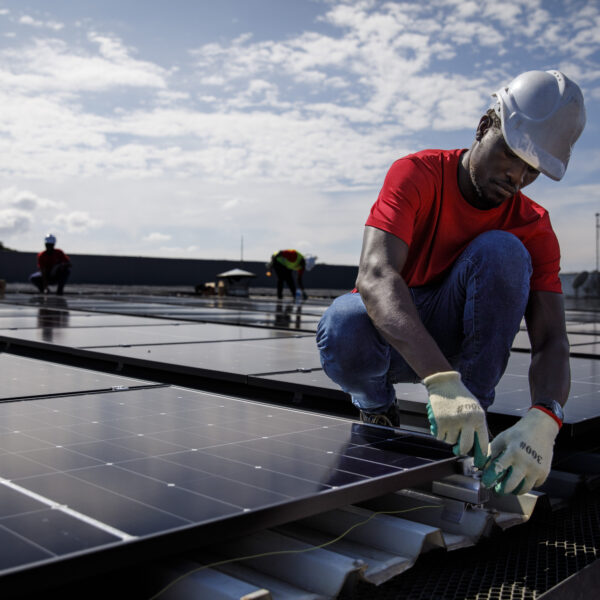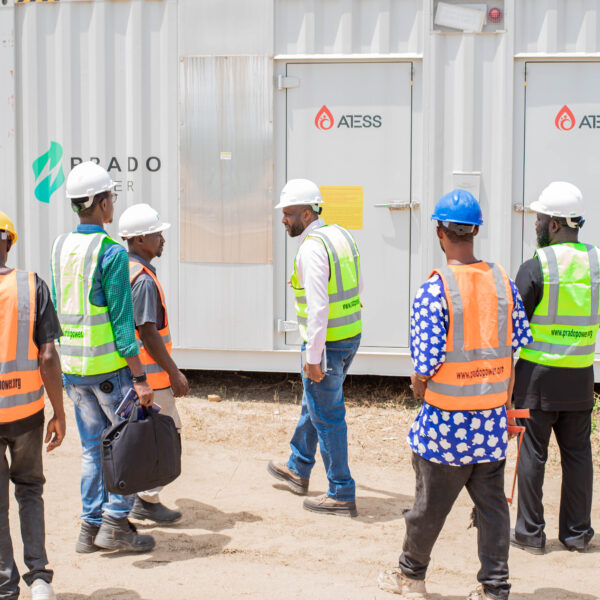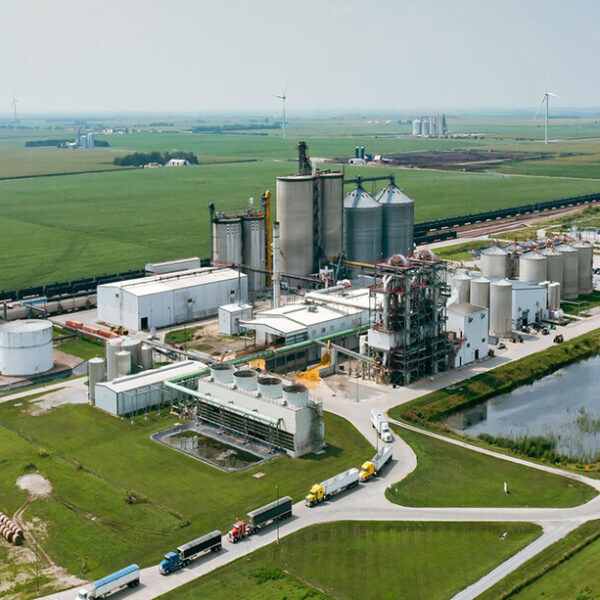Electric buses cut emissions and keep Nairobi moving
Key figures
Expected results
Electric buses cut emissions and keep Nairobi moving
About
In Nairobi, people seeking public transport often jump on a matatu – a low-cost minibus run by a small operator. But Africa’s one million buses consume over one billion litres of diesel each year, creating one of the largest sources of CO2 emissions on the continent.
At the same time, more than 90% of Kenya’s electricity comes from renewable sources such as hydro, geothermal and wind energy, so shifting to electric buses could be a big climate win. With that in mind, two energy entrepreneurs left the world of off-grid solar to found BasiGo in 2021. Their aim? To make a big impact with a small carbon footprint in electric transport, using an innovative business model.
As small operators, matatu owners are unlikely to be able to afford new, climate-friendly e-buses with their expensive batteries and charging infrastructure. So BasiGo’s pay-as-you-drive model takes on the financial load: operators buy the bus but lease the battery from BasiGo, paying about €0.40 for each kilometre they drive and for the electricity to recharge the battery overnight at a BasiGo depot. Not having to buy the battery makes an e-bus much more affordable at over €800 per month, and it’s cheaper to run than a diesel bus (in November 2022, diesel cost around €0.30 per kilometre in Nairobi). Since BasiGo’s launch, seven companies in Nairobi have put the city’s first e-buses into action.
Our support
After an advisor from the GET.invest Finance Catalyst approached BasiGo and explained what the service could offer, the advisor and the company’s founders began to hold regular check-ins. The advisor knew that the bus market in Kenya, including private operators and co-operatives, is worth €2.75 billion, and very few companies operate in the e-bus space, making BasiGo a compelling proposition for investors. As an early-stage business, however, BasiGo did not have the track record to easily raise funding from traditional lenders or development finance.
The advisor acted as a sounding board for the CFO as he strategically aligned the company’s business sectors, revenue models and funding structure. The GET.invest Finance Catalyst also provides legal support to set up the capital structure and contractual arrangements for BasiGo. With these elements in place, the advisor has introduced the company to multiple potential financiers who focus on e-mobility ventures at a relatively early stage.
The company has raised €3.5 million in seed funding so far from international investors but is seeking much more, and the Finance Catalyst continues to help it towards larger financial closes. GET.invest is advising on syndication scenarios, the structuring of different debt facilities, and the lead contracts for those debt facilities, potentially via third-party legal advisors.
The outcome
BasiGo began 2023 with just two buses on the road but could boast 19 by the middle of the year, and aims to reach 49 by the end. Following a partnership with a local company, the buses, supplied to BasiGo by top-tier Chinese manufacturers, are now being assembled in Kenya.
Monitoring their fleet remotely, BasiGo has recorded these buses carrying 797,230 passengers a total of 573,408 kilometers – and more every day. Passengers now seek out BasiGo’s e-buses for a more comfortable and quieter alternative to the typical noisy diesel matatu, as well as perks like free wi-fi, all for the same cost. For bus operators, the savings on fuel may be enough to save up for an additional e-bus within a year. Operators also benefit from reduced maintenance costs, as the e-buses are new whereas traditional buses are often bought second-hand.
BasiGo currently has three charging stations and plans to set up 15 more during 2023, in locations convenient to bus operators such as malls, car parks and petrol stations. By charging at night, when there’s a surplus of geothermal energy, the service is becoming a welcome stabiliser for Nairobi’s renewable-powered electricity grid. With such promise established in this city, BasiGo hopes to expand soon to other cities and countries. The larger investments they are seeking with GET.invest support will keep these electric dreams growing.
Disclaimer: This story was last updated in August 2023.





